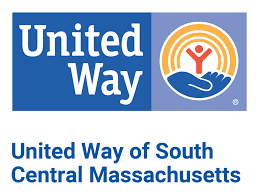
December 28, 2023
Cy pres awards from Six Flags, other cases to fund western Massachusetts legal services
BY Massachusetts Lawyer Weekly
When Dakota Hickman and Matthew D’Agostino volunteered to serve as class representatives in a lawsuit against operators of the Six Flags amusement park, their main goal was to recoup the overtime pay they allege was improperly denied to them and some 2,600 other seasonal employees. Expanding employment-related legal assistance to low-income workers in the western part of the state was almost certainly not on their radar.
However, they managed to accomplish both.
Community Legal Aid, the nonprofit civil legal aid program serving low-income and elderly residents of Berkshire, Franklin, Hampden, Hampshire and Worcester counties, recently announced that it received three cy pres awards — unclaimed residuals from class action settlement funds — totaling nearly $224,000.
The vast bulk — over $203,000 — came from Hickman v. Riverside Park Enterprises, Inc. d/b/a Six Flags New England, a class action in Suffolk Superior Court pursued by the Law Office of Nicholas F. Ortiz in Boston.
The other cases were Stacy v. Worcester Skilled Care Center Inc. in Norfolk Superior Court, also litigated by Ortiz’s office, and Bassett v. Responsive Trucking in Hampden Superior Court, handled by attorney Phillip J. Gordon and the Gordon Law Group in Boston. The cy pres awards from those cases were $14,203 and $6,251, respectively.
The settlement in Six Flags received final approval in April 2021, more than five years after the case was first filed.
The $4 million settlement amount represented approximately 95 percent of the potential damages due to Six Flags workers who worked more than 40 hours in a week without premium pay, the plaintiffs claimed.
The premise of the plaintiffs’ lawsuit was that by extending its operations, including with its winter Holiday in the Park program, Six Flags had forfeited the benefit of an exemption under the Massachusetts Overtime Law, G.L.c. 151, §1A, available to amusement parks that do not operate for more than 150 days a year.
Six Flags denied it had violated the overtime law, advancing the argument that its special events like Holiday in the Park were a separate business. But Ortiz says the plaintiffs were confident, had the case gone to trial, that a factfinder would have agreed that it was the “same enterprise.”
A turning point in the case came in 2019, when the plaintiffs largely prevailed after both parties moved for partial summary judgment.
“The upshot of the Court’s ruling was that seasonal hourly employees were due overtime wages for the years 2015, 2017, and 2018, except for hours worked during 2017 and 2018 when Six Flags operated its ‘Holiday in the Park’ program,” Ortiz wrote in the memorandum supporting the assented-to motion for final approval of the class action settlement.
Six Flags’ motion for reconsideration and petition for interlocutory review were then both denied. Additional discovery established that the certified class was due overtime wages for the 2019 calendar year as well.
Ortiz tells Lawyers Weekly that he had gotten to know several members of the class of plaintiffs — generally high school and college students who had worked summer jobs at the park — and was gratified to achieve such a favorable result on their behalf.
The residual amount in the settlement fund may have been atypically large because the young plaintiffs were at a stage of life where they were changing addresses frequently and hard to track down.
The Massachusetts IOLTA Committee has endorsed class action residuals as “an ideal way to advance the goal of ensuring equal access to justice and serve the interests that the class action was designed to address.” The awards would seem to fit that mold well.
A lot of the plaintiffs were also from western Massachusetts, which made it particularly gratifying to designate the cy pres award to supplement civil legal aid in that part of the state, Ortiz says.
“I know that it is not uncommon for low-wage workers in various industries to be subject to wage theft and other violations of their legal rights,” he says. “I am pleased to be able to support the work of Community Legal Aid to vindicate the rights of low-income workers.”
Amy C. Dion, the senior supervising attorney of the education and employment law units at CLA, says that cy pres awards do come her office’s way “from time to time.” But this trio of awards stands to be particularly impactful.
The plan is to use the money to hire one or two attorneys, which will significantly increase the capacity of her current employment law team. That team consists of four full-time attorneys “plus a smattering of other people,” she says.
CLA’s employment law unit represents workers with claims related to wage or employment discrimination, Massachusetts’ Paid Family and Medical Leave, and the Family and Medical Leave Act, as well as workers with cases before the Division of Unemployment Assistance. The unit often takes on cases that other attorneys have said “no” to, Dion adds.
Dion says she is optimistic that Community Legal Aid will devise a way to keep the newly hired attorney or attorneys on the payroll once the cy pres seed money is depleted. The wage theft cases that the office handles come with the potential for attorneys’ fee awards, she notes.
Beyond what the money might accomplish, Dion says she is grateful for the validation the awards from Ortiz’s and Gordon’s offices represent.
“It’s wonderful to see them recognize the work we do,” she says. “I’m very thankful they keep us in mind when these kinds of awards are available.”















































